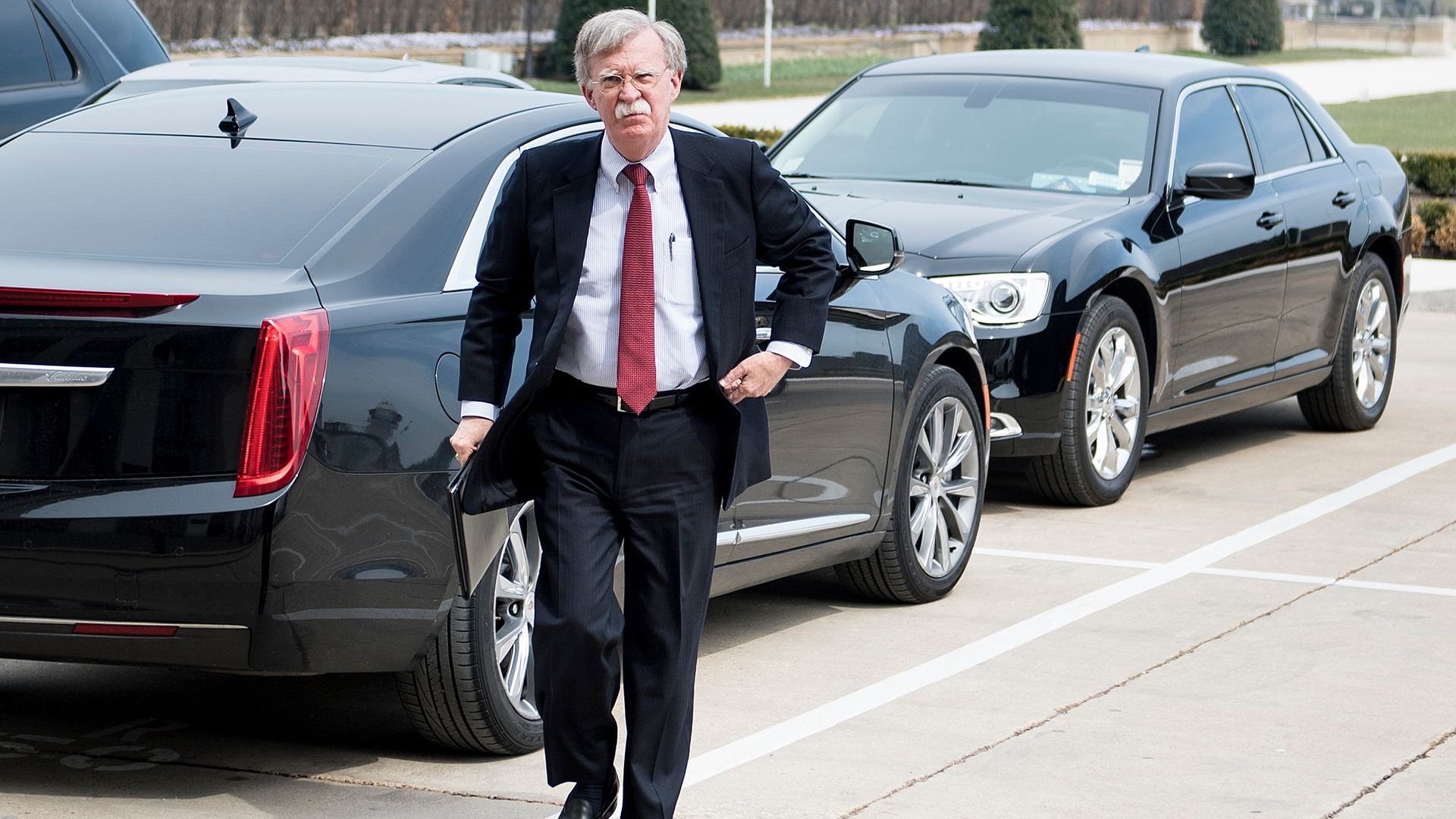How John Bolton will fit into Trump's foreign policy team
Add Axios as your preferred source to
see more of our stories on Google.

National Security Advisor John Bolton outside the Pentagon on March 29, 2018. Photo: Brendan Smialowski/AFP/Getty Images
Today John Bolton starts as President Trump’s new national security adviser — his third in thirteen months — and may well become Trump‘s most influential and ideological foreign policy adviser.
What’s Next: It's too soon to tell how Bolton will interact, cooperate and compete as a member of Trump's foreign policy team. He has a reputation as a skilled bureaucratic maneuverer and infighter, though his biggest challenge may not be the bureaucracy but the all-important presidential constituency of one.
Although Bolton doesn't yet enjoy the trust Trump has in Secretary of Defense Mattis or the personal chemistry he has with Secretary of State designate Mike Pompeo, he will have several advantages. Pompeo, for example, will be on the road often, without the same day-to-day proximity to Trump, and also heads a department of diplomats Trump dislikes and dismisses.
Bolton will be charged with developing options on two critical issues — a planned US-North Korean summit and the status of the Iran nuclear accord — and planning for a third, how to respond to the Assad regime’s latest use of chemical weapons. He seems to share the president’s desire to withdraw from the Iran deal, but on North Korea where he has advocated a military option, he may face a president who wants a deal if he can get one.
Trump has called for bringing U.S. troops home from Syria. Given his hawkish stance on Iran, Bolton — though no proponent of intervening in that civil war —may prefer to keep them on the ground to counter Tehran. If he is able to help Trump through the present Syrian crisis, that could cement his credentials with the president on other issues.
The bottom line: Bolton will face a challenge in creating and sustaining a functional relationship with a president who's even even more combustible and unpredictable than he is. He may struggle to reconcile tough and ideological foreign policy views with Trump's more pragmatic and risk-averse approach, especially around the use of military force. The real question is whether he has the personal skills and emotional intelligence to handle the president.
Aaron David Miller is vice president for new initiatives and director of the Middle East Program at the Wilson Center.
